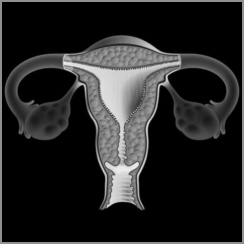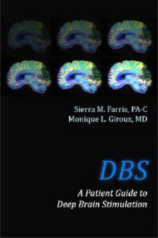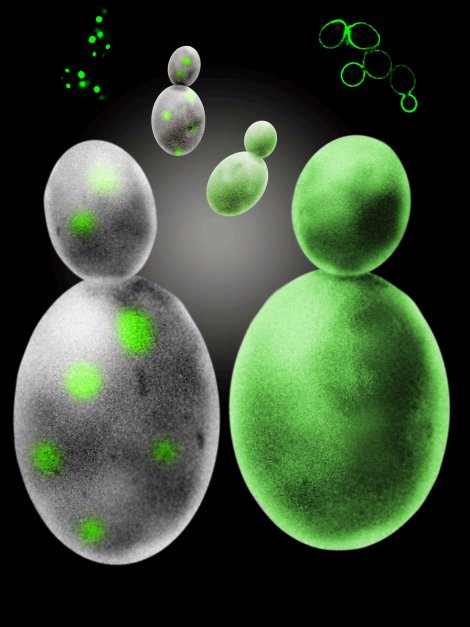29th December 2013 - New research
L-DOPA PRODRUG FOR PARKINSON'S
DISEASE
Movement Disorders [2013] Dec 13 [Epub ahead of print (P.A.Lewitt,
F.J.Huff, R.A.Hauser, D.Chen, D.Lissin, K.Zomorodi, K.C.Cundy)
Complete abstract
 XP21279 is a new L-dopa prodrug being developed
by Xenoport for the treatment of
Parkinson's Disease. It uses naturally occurring, high capacity nutrient
transporters in the gastrointestinal tract to generate active and efficient
absorption into the body.
XP21279 is a new L-dopa prodrug being developed
by Xenoport for the treatment of
Parkinson's Disease. It uses naturally occurring, high capacity nutrient
transporters in the gastrointestinal tract to generate active and efficient
absorption into the body.
XP21279-carbidopa sustained-release bilayer tablets were developed to
provide more continuous exposure to L-dopa. Once absorbed, XP21279 is rapidly converted into
L-dopa. In a clinical trial of XP21279, people with Parkinson's Disease were
given either XP21279 with carbidopa, or L-dopa with carbidopa, which as
Sinemet is the most common means of treating Parkinson's Disease.
The average daily off time was reduced more when using XP21279 but only by
18 minutes.
There was little difference between the two in their effect on dyskinesia.
However, XP21279 significantly reduced the variability of L-dopa
concentration that occurs when using Sinemet (L-dopa and carbidopa). This
was achieved by taking XP21279 only three times per day, instead of the four
to five times a day that the L-dopa with carbidopa was taken. Therefore,
overall, although L-dopa and carbidopa as Sinemet
is the most common means of treating Parkinson's Disease, XP21279 was found
to be more advantageous.
In order to refer to this article on its own
click here.
28th December 2013 - New research
FEMALE REPRODUCTIVE FACTORS AND THE RISK OF PARKINSON'S
DISEASE
Movement Disorders [2013] Dec 18 [Epub ahead of print] (R.Liu, D.Baird,
Y.Park, N.D.Freedman, X.Huang, A.Hollenbeck, A.Blair, H.Chen)
Complete abstract
In the largest ever study of its kind, researchers examined female
reproductive factors and the risk of Parkinson's Disease. The study involved
nearly 120,000 postmenopausal women aged 50 to 71 years. The risk of
developing Parkinson's Disease was not significantly associated with
female reproductive factors including age at first menstruation, age at
first live birth, and age at menopause generally.
 However,
there was a tendency for an increased risk of Parkinson's Disease in those
women who reached menopause when they were 55 or older. Current hormone
users for less than 5 years showed a higher risk of developing Parkinson's
Disease, which was anywhere between 11% more likely to more than twice as
likely. However, this association disappeared for current hormone users
after 5 years of use.
Oral contraceptive use for ten years was associated with a lower risk
of Parkinson's Disease, down to 59% of what would otherwise be expected.
In order to refer to this article on its own
click here.
However,
there was a tendency for an increased risk of Parkinson's Disease in those
women who reached menopause when they were 55 or older. Current hormone
users for less than 5 years showed a higher risk of developing Parkinson's
Disease, which was anywhere between 11% more likely to more than twice as
likely. However, this association disappeared for current hormone users
after 5 years of use.
Oral contraceptive use for ten years was associated with a lower risk
of Parkinson's Disease, down to 59% of what would otherwise be expected.
In order to refer to this article on its own
click here.
20th December 2013 - New review
PESTICIDES ON AIRCRAFT AS A CAUSE OF PARKINSON'S DISEASE
Flight attendants who have developed Parkinson's Disease have taken legal
action to try to prove that they have developed Parkinson's Disease because
of the
insecticides that are routinely sprayed inside aircraft.
For more information go to
News report and
News report
Those pesticides that are known to cause, or be highly associated with
Parkinson's Disease are Dieldrin, Rotenone and
Organophosphorus pesticides. The fungicides Maneb and Paraquat are also
known causes of Parkinson's Disease.
Evidence in support of Permathrin, which is used in aircraft, is presently
restricted to three animal studies.
 Dieldrin
levels are above normal in brains of people with Parkinson's Disease.
Dieldrin was the most frequently detected Organochlorine pesticide in people
with Parkinson's Disease thereby suggesting that dieldrin is associated with
Parkinson's Disease. Organophosphorus pesticides are significantly
associated with Parkinson's Disease. The frequent use of household
pesticides containing Organophosphorus chemicals increased the chances of
developing Parkinson's Disease by 71%. Exposure can lead to Parkinsonism.
Rotenone can cause the neurochemical, neuropathological and behavioural
features of Parkinson's disease, including hypokinesia and rigidity. In order to refer to this article on its own
click here.
Dieldrin
levels are above normal in brains of people with Parkinson's Disease.
Dieldrin was the most frequently detected Organochlorine pesticide in people
with Parkinson's Disease thereby suggesting that dieldrin is associated with
Parkinson's Disease. Organophosphorus pesticides are significantly
associated with Parkinson's Disease. The frequent use of household
pesticides containing Organophosphorus chemicals increased the chances of
developing Parkinson's Disease by 71%. Exposure can lead to Parkinsonism.
Rotenone can cause the neurochemical, neuropathological and behavioural
features of Parkinson's disease, including hypokinesia and rigidity. In order to refer to this article on its own
click here.
19th December 2013 - New book
DBS A PATIENT GUIDE TO DEEP BRAIN STIMULATION
Sierra M.Farris, Monique L.Giroux
 Publisher's
description : DBS A Patient Guide to Deep Brain Stimulation by DBS experts
Sierra Farris and Monique Giroux distill a high tech brain surgery into
understandable terms for every reader. The authors bring 14 years� experience
working as a DBS team in treating over 1000 patients. Their easy to read format
is packed with practical tips in a patient-centered approach. The authors hope
to promote patient empowerment by offering insights that are rarely shared
outside the clinic appointment. Filled with case studies, personal stories,
practical tips and unique graphics, this book offers in-depth easy to understand
explanations for one of the most high tech procedures that can turn back the
clock on neurological disease.
Click here for more details. For
more books concerning Parkinson's Disease go to
Parkinson's Disease Books
Publisher's
description : DBS A Patient Guide to Deep Brain Stimulation by DBS experts
Sierra Farris and Monique Giroux distill a high tech brain surgery into
understandable terms for every reader. The authors bring 14 years� experience
working as a DBS team in treating over 1000 patients. Their easy to read format
is packed with practical tips in a patient-centered approach. The authors hope
to promote patient empowerment by offering insights that are rarely shared
outside the clinic appointment. Filled with case studies, personal stories,
practical tips and unique graphics, this book offers in-depth easy to understand
explanations for one of the most high tech procedures that can turn back the
clock on neurological disease.
Click here for more details. For
more books concerning Parkinson's Disease go to
Parkinson's Disease Books
14th December 2013 - News release
ANTIBODIES FOR THE TREATMENT OF PARKINSON'S DISEASE
Roche and Prothena are collaborating to co-develop antibodies for the
treatment of Parkinson's Disease. Prothena's antibody for the
treatment of Parkinson's disease,
PRX002, targets alpha-synuclein. PRX002 is currently in
preclinical development. It is expected to enter Phase 1 clinical trials in
people with Parkinson's Disease in 2014. PRX002 has already been tested in
various cellular and animal models of synuclein-related disease.
 Synuclein proteins are found throughout the
body. One protein from this family, alpha-synuclein, is found extensively in
neurons and characterize several neurodegenerative disorders, including Parkinson's
Disease, dementia with Lewy bodies, neurodegeneration with brain iron
accumulation type 1, and multiple system atrophy, which collectively are
termed synucleinopathies. As part of the agreement, Roche and Prothena will
initiate a research collaboration focused on including incorporation of
Roche's proprietary Brain Shuttle technology
to increase delivery of therapeutic antibodies to the brain.
For more information go to the
News release In order to refer to this article on its own
click here.
Synuclein proteins are found throughout the
body. One protein from this family, alpha-synuclein, is found extensively in
neurons and characterize several neurodegenerative disorders, including Parkinson's
Disease, dementia with Lewy bodies, neurodegeneration with brain iron
accumulation type 1, and multiple system atrophy, which collectively are
termed synucleinopathies. As part of the agreement, Roche and Prothena will
initiate a research collaboration focused on including incorporation of
Roche's proprietary Brain Shuttle technology
to increase delivery of therapeutic antibodies to the brain.
For more information go to the
News release In order to refer to this article on its own
click here.
10th December 2013 - New book
PARKINSON'S DISEASE TRAPPED
- IT'S A GREY MATTER
Christopher C. Evans
 Publisher's
description : Parkinson�s disease 'Trapped' questions and expands our
understanding of Parkinson�s disease. Accessible and meticulously researched,
the observations illuminate the grey matter of brain science. It examines three
regions of the brain and how these relate to symptoms of Parkinson�s disease,
highlighting insights that lead to the discovery of a unique potential cause.
Exploring the effects of trauma and lack of blood supply to the brain, it finds
missing pieces of the Parkinson�s puzzle. This book explains why people, who
smoke cigarettes, drink alcohol, have high cholesterol, and drink too much
coffee are less likely to get Parkinson's disease. It presents a controversial
three phase model of neurodegeneration.
Click here for more details. For
more books concerning Parkinson's Disease go to
Parkinson's Disease Books
Publisher's
description : Parkinson�s disease 'Trapped' questions and expands our
understanding of Parkinson�s disease. Accessible and meticulously researched,
the observations illuminate the grey matter of brain science. It examines three
regions of the brain and how these relate to symptoms of Parkinson�s disease,
highlighting insights that lead to the discovery of a unique potential cause.
Exploring the effects of trauma and lack of blood supply to the brain, it finds
missing pieces of the Parkinson�s puzzle. This book explains why people, who
smoke cigarettes, drink alcohol, have high cholesterol, and drink too much
coffee are less likely to get Parkinson's disease. It presents a controversial
three phase model of neurodegeneration.
Click here for more details. For
more books concerning Parkinson's Disease go to
Parkinson's Disease Books
.gif)
.gif)
 XP21279 is a new L-dopa prodrug being developed
by Xenoport for the treatment of
Parkinson's Disease. It uses naturally occurring, high capacity nutrient
transporters in the gastrointestinal tract to generate active and efficient
absorption into the body.
XP21279 is a new L-dopa prodrug being developed
by Xenoport for the treatment of
Parkinson's Disease. It uses naturally occurring, high capacity nutrient
transporters in the gastrointestinal tract to generate active and efficient
absorption into the body.  However,
there was a tendency for an increased risk of Parkinson's Disease in those
women who reached menopause when they were 55 or older. Current hormone
users for less than 5 years showed a higher risk of developing Parkinson's
Disease, which was anywhere between 11% more likely to more than twice as
likely. However, this association disappeared for current hormone users
after 5 years of use.
Oral contraceptive use for ten years was associated with a lower risk
of Parkinson's Disease, down to 59% of what would otherwise be expected.
In order to refer to this article on its own
However,
there was a tendency for an increased risk of Parkinson's Disease in those
women who reached menopause when they were 55 or older. Current hormone
users for less than 5 years showed a higher risk of developing Parkinson's
Disease, which was anywhere between 11% more likely to more than twice as
likely. However, this association disappeared for current hormone users
after 5 years of use.
Oral contraceptive use for ten years was associated with a lower risk
of Parkinson's Disease, down to 59% of what would otherwise be expected.
In order to refer to this article on its own
 Dieldrin
levels are above normal in brains of people with Parkinson's Disease.
Dieldrin was the most frequently detected Organochlorine pesticide in people
with Parkinson's Disease thereby suggesting that dieldrin is associated with
Parkinson's Disease. Organophosphorus pesticides are significantly
associated with Parkinson's Disease. The frequent use of household
pesticides containing Organophosphorus chemicals increased the chances of
developing Parkinson's Disease by 71%. Exposure can lead to Parkinsonism.
Rotenone can cause the neurochemical, neuropathological and behavioural
features of Parkinson's disease, including hypokinesia and rigidity. In order to refer to this article on its own
Dieldrin
levels are above normal in brains of people with Parkinson's Disease.
Dieldrin was the most frequently detected Organochlorine pesticide in people
with Parkinson's Disease thereby suggesting that dieldrin is associated with
Parkinson's Disease. Organophosphorus pesticides are significantly
associated with Parkinson's Disease. The frequent use of household
pesticides containing Organophosphorus chemicals increased the chances of
developing Parkinson's Disease by 71%. Exposure can lead to Parkinsonism.
Rotenone can cause the neurochemical, neuropathological and behavioural
features of Parkinson's disease, including hypokinesia and rigidity. In order to refer to this article on its own
 Publisher's
description : DBS A Patient Guide to Deep Brain Stimulation by DBS experts
Sierra Farris and Monique Giroux distill a high tech brain surgery into
understandable terms for every reader. The authors bring 14 years� experience
working as a DBS team in treating over 1000 patients. Their easy to read format
is packed with practical tips in a patient-centered approach. The authors hope
to promote patient empowerment by offering insights that are rarely shared
outside the clinic appointment. Filled with case studies, personal stories,
practical tips and unique graphics, this book offers in-depth easy to understand
explanations for one of the most high tech procedures that can turn back the
clock on neurological disease.
Publisher's
description : DBS A Patient Guide to Deep Brain Stimulation by DBS experts
Sierra Farris and Monique Giroux distill a high tech brain surgery into
understandable terms for every reader. The authors bring 14 years� experience
working as a DBS team in treating over 1000 patients. Their easy to read format
is packed with practical tips in a patient-centered approach. The authors hope
to promote patient empowerment by offering insights that are rarely shared
outside the clinic appointment. Filled with case studies, personal stories,
practical tips and unique graphics, this book offers in-depth easy to understand
explanations for one of the most high tech procedures that can turn back the
clock on neurological disease.
 Synuclein proteins are found throughout the
body. One protein from this family, alpha-synuclein, is found extensively in
neurons and characterize several neurodegenerative disorders, including Parkinson's
Disease, dementia with Lewy bodies, neurodegeneration with brain iron
accumulation type 1, and multiple system atrophy, which collectively are
termed synucleinopathies. As part of the agreement, Roche and Prothena will
initiate a research collaboration focused on including incorporation of
Roche's proprietary Brain Shuttle technology
to increase delivery of therapeutic antibodies to the brain.
For more information go to the
Synuclein proteins are found throughout the
body. One protein from this family, alpha-synuclein, is found extensively in
neurons and characterize several neurodegenerative disorders, including Parkinson's
Disease, dementia with Lewy bodies, neurodegeneration with brain iron
accumulation type 1, and multiple system atrophy, which collectively are
termed synucleinopathies. As part of the agreement, Roche and Prothena will
initiate a research collaboration focused on including incorporation of
Roche's proprietary Brain Shuttle technology
to increase delivery of therapeutic antibodies to the brain.
For more information go to the
 Publisher's
description : Parkinson�s disease 'Trapped' questions and expands our
understanding of Parkinson�s disease. Accessible and meticulously researched,
the observations illuminate the grey matter of brain science. It examines three
regions of the brain and how these relate to symptoms of Parkinson�s disease,
highlighting insights that lead to the discovery of a unique potential cause.
Exploring the effects of trauma and lack of blood supply to the brain, it finds
missing pieces of the Parkinson�s puzzle. This book explains why people, who
smoke cigarettes, drink alcohol, have high cholesterol, and drink too much
coffee are less likely to get Parkinson's disease. It presents a controversial
three phase model of neurodegeneration.
Publisher's
description : Parkinson�s disease 'Trapped' questions and expands our
understanding of Parkinson�s disease. Accessible and meticulously researched,
the observations illuminate the grey matter of brain science. It examines three
regions of the brain and how these relate to symptoms of Parkinson�s disease,
highlighting insights that lead to the discovery of a unique potential cause.
Exploring the effects of trauma and lack of blood supply to the brain, it finds
missing pieces of the Parkinson�s puzzle. This book explains why people, who
smoke cigarettes, drink alcohol, have high cholesterol, and drink too much
coffee are less likely to get Parkinson's disease. It presents a controversial
three phase model of neurodegeneration.